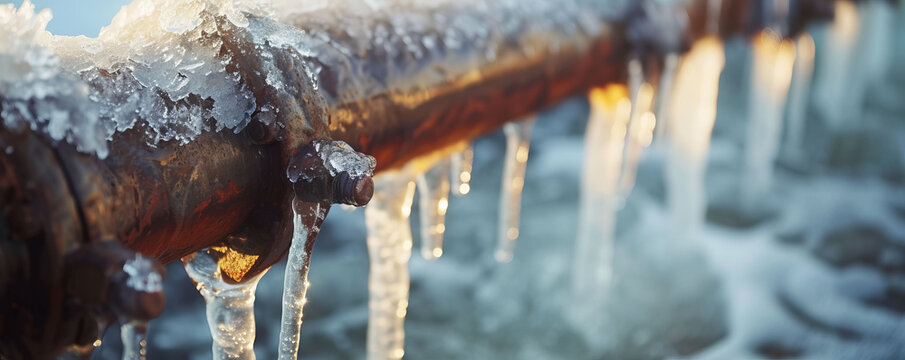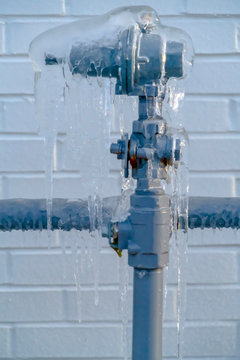Crucial Advice to Avoid Frozen Pipes in Cold Weather: Expert Insights
Crucial Advice to Avoid Frozen Pipes in Cold Weather: Expert Insights
Blog Article
Listed here underneath you can discover some extremely good news around Prevent Frozen Pipes .

Cold weather can wreak havoc on your plumbing, especially by freezing pipelines. Below's how to prevent it from occurring and what to do if it does.
Introduction
As temperatures decrease, the danger of frozen pipes boosts, potentially leading to costly repair work and water damages. Understanding how to avoid frozen pipes is critical for house owners in cool environments.
Avoidance Tips
Shielding at risk pipelines
Cover pipelines in insulation sleeves or make use of warmth tape to shield them from freezing temperature levels. Concentrate on pipelines in unheated or outside areas of the home.
Heating techniques
Maintain interior rooms effectively heated up, specifically locations with plumbing. Open cabinet doors to allow warm air to distribute around pipes under sinks.
Exactly how to determine icy pipelines
Search for reduced water flow from faucets, unusual smells or noises from pipelines, and visible frost on exposed pipelines.
Long-Term Solutions
Architectural modifications
Consider rerouting pipelines away from exterior wall surfaces or unheated areas. Add added insulation to attics, cellars, and crawl spaces.
Updating insulation
Invest in high-grade insulation for pipes, attics, and wall surfaces. Correct insulation aids maintain constant temperature levels and lowers the risk of frozen pipes.
Securing Outside Pipes
Yard tubes and exterior taps
Separate and drain pipes yard tubes prior to winter months. Mount frost-proof faucets or cover exterior taps with shielded caps.
Recognizing Icy Pipes
What causes pipes to ice up?
Pipelines freeze when exposed to temperature levels listed below 32 ° F (0 ° C) for prolonged periods. As water inside the pipelines ices up, it expands, taxing the pipeline walls and potentially causing them to burst.
Dangers and problems
Icy pipes can lead to supply of water disruptions, home damage, and costly fixings. Ruptured pipes can flood homes and trigger substantial structural damage.
Indicators of Frozen Pipeline
Identifying frozen pipelines early can avoid them from rupturing.
What to Do If Your Pipes Freeze
Immediate activities to take
If you think frozen pipes, keep faucets open to ease stress as the ice melts. Use a hairdryer or towels taken in warm water to thaw pipes slowly.
Verdict
Protecting against frozen pipes calls for positive measures and fast reactions. By understanding the reasons, signs, and safety nets, property owners can protect their pipes during winter.
Helpful Tips to Prevent Frozen Pipes this Winter
UNDERSTANDING THE BASICS: WHY PIPES FREEZE AND WHY IT’S A PROBLEM
Water freezing inside pipes is common during the winter months, but understanding why pipes freeze, and the potential problems it can cause is crucial in preventing such incidents. This section will delve into the basics of why pipes freeze and the associated problems that may arise.
THE SCIENCE BEHIND FROZEN PIPES
When water reaches freezing temperatures, it undergoes a physical transformation and solidifies into ice. This expansion of water as it freezes is the primary reason pipes can burst. As the water inside the pipe freezes, it expands, creating immense pressure on the walls. If the pressure becomes too great, the pipe can crack or rupture, leading to leaks and water damage.
FACTORS THAT CONTRIBUTE TO PIPE FREEZING
Low Temperatures: Extremely cold weather, especially below freezing, increases the risk of pipes freezing. Uninsulated or Poorly Insulated Pipes: Pipes located in unheated areas, such as basements, crawl spaces, or attics, are more prone to freezing. Insufficient insulation or lack of insulation altogether exacerbates the problem. Exterior Wall Exposure: Pipes running along exterior walls are susceptible to freezing as they encounter colder temperatures outside. Lack of Heating or Temperature Regulation: Inadequate heating or inconsistent temperature control in your home can contribute to frozen pipes. PROBLEMS CAUSED BY FROZEN PIPES
- Pipe Bursting: As mentioned earlier, the expansion of water as it freezes can cause pipes to burst, resulting in significant water damage.
- Water Damage: When pipes burst, it can lead to flooding and water damage to your property, including walls, ceilings, flooring, and personal belongings.
- Structural Damage: Prolonged exposure to water from burst pipes can compromise the structural integrity of your home, leading to costly repairs.
- Mold and Mildew Growth: Excess moisture from water damage can create a favorable environment for mold and mildew growth, posing health risks to occupants.
- Disrupted Water Supply: Frozen pipes can also result in a complete or partial loss of water supply until the issue is resolved.
WHY CERTAIN PIPES ARE MORE PRONE TO FREEZING
- Location: Pipes located in unheated or poorly insulated areas, such as basements, crawl spaces, attics, or exterior walls, are at higher risk of freezing.
- Exterior Pipes: Outdoor pipes, such as those used for irrigation or exposed plumbing, are particularly vulnerable to freezing as they are directly exposed to the elements.
- Supply Lines: Pipes that carry water from the main water supply into your home, including the main water line, are critical to protect as freezing in these lines can affect your entire plumbing system.
- Underground Pipes: Pipes buried underground, such as those connected to sprinkler systems or outdoor faucets, can be susceptible to freezing if not properly insulated.
https://busybusy.com/blog/helpful-tips-to-prevent-frozen-pipes-this-winter/

I was made aware of that article about Preventing and dealing with frozen pipes from an acquaintance on another site. Sharing is caring. You just don't know, you will be doing someone a favor. I am grateful for your time. Please visit our blog back soon.
Go Deal Now Report this page